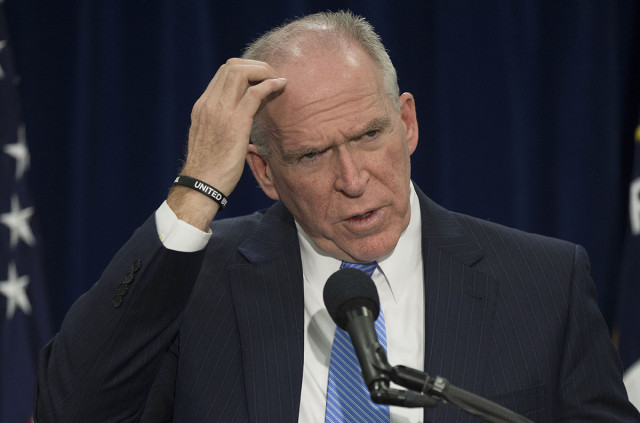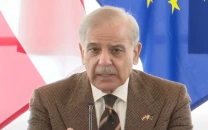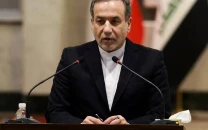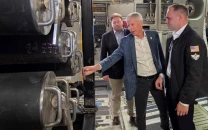Torture report fallout: CIA chief admits some interrogations 'abhorrent'
Brennan admits use of coercive methods has a strong prospect for resulting in false information

In a rare news conference, broadcast live from the agency's Langley headquarters in what is believed to be a first in CIA history, Brennan mounted a stout defense of his officers.
But, in the wake of a damning Senate report into its treatment of al Qaeda suspects that triggered global revulsion, he confirmed that some had gone beyond their orders and abused prisoners.
Brennan said the Central Intelligence Agency had been too rushed to launch a detention and interrogation program for the suspects in the aftermath of the September 11, 2001 attacks.
"We were not prepared," he said, describing how then President George W Bush had authorised the so-called "enhanced interrogation techniques" now denounced as torture.
President Barack Obama halted the program upon taking office and has since described the Bush-era use of torture by the CIA as counterproductive and an affront to American values.
"In a limited number of cases, agency officers used interrogation techniques that had not been authorised, were abhorrent and rightly should be repudiated by all," Brennan admitted.
'Strong prospect' coercive methods can yield false information
Amid a political row about whether Bush was right to order tough tactics in the wake of the attacks, Brennan said it is impossible to know whether harsh interrogations had won useful intelligence.
"I tend to believe that the use of coercive methods has a strong prospect for resulting in false information," he said.
Counter to the findings in the report, Brennan maintained that information from detainees was indeed useful in the hunt for Osama bin Laden, but it was impossible to know whether the enhanced interrogation had been necessary.
"There's no way to know if information obtained from an individual who had been subjected at some point during his confinement could have been obtained through other means," he said. The Senate report had found that detainees more often than not gave the correct information when simply asked for it than when they were tortured for it.
CIA no longer tortures suspects
Brennan said that the CIA was no longer involved in detaining and interrogating suspects and has instituted reforms to prevent such abuses from happening again.
But he was critical of this week's Senate intelligence committee report that accused the CIA of having misled the US government and public for years about the success of its torture methods.
Feinstein live-rebuts Brennan
Committee chair Senator Dianne Feinstein, who released the report after a long wrangle with the CIA over what should be redacted, responded to Brennan point-by-point even as he fielded questions from reporters during the live briefing.
"CIA helps keep our nation safe, strong. Torture does not. We must learn from our mistakes," her staff wrote on Twitter.
CIA, FBI, NSA, DIA, DOD, NGA, State Dept, DHS and many other agencies help keep us safe. Torture does not. #ReadTheReport
— Senator Dianne Feinstein (@SenFeinstein) December 11, 2014
She said the 500-page executive summary released on Tuesday was a small part of a 6,700-page report, and denied that lawmakers had cherry-picked damning material.
And she disputed the idea that it could not be known whether torture -- known as enhanced interrogation techniques, or EITs -- had led the CIA to its quarry.
Coercive interrogation techniques don’t work. Traditional intelligence collection, interrogation and law enforcement do. #ReadTheReport
— Senator Dianne Feinstein (@SenFeinstein) December 11, 2014
Brennan: "unknowable" if we could have gotten the intel other ways. Study shows it IS knowable: CIA had info before torture. #ReadTheReport
— Senator Dianne Feinstein (@SenFeinstein) December 11, 2014
"Study definitively proves EITs did not lead to bin Laden. Page 378," her staff tweeted.
Critical intelligence that led to bin Laden was unrelated to EITs. #ReadTheReport #TortureReport
— Senator Dianne Feinstein (@SenFeinstein) December 11, 2014
EIT authority based on vital, otherwise unavailable intel. Not “useful information.” #ReadTheReport
— Senator Dianne Feinstein (@SenFeinstein) December 11, 2014
No evidence that terror attacks were stopped, terrorists captured or lives saved through use of EITs. #ReadTheReport
— Senator Dianne Feinstein (@SenFeinstein) December 11, 2014
“Useful information” was not the legal policy standard for EITs. #ReadTheReport
— Senator Dianne Feinstein (@SenFeinstein) December 11, 2014
The report into the US intelligence agency's abuse of al Qaeda suspects in a network of secret prisons around the world between 2002 and 2009 triggered global outrage and demands for justice.
Obama has condemned the torture, but has refused to say whether he thinks it is sometimes effective.
He was ambushed Thursday with a question on torture at the beginning of a meeting of his export council and dodged it, protesting: "We are talking about exports here."
Earlier, his spokesperson Josh Earnest had refused a "yes or no" question as to whether Obama believes that torture saves lives.
"The most important question is: Should we have done it? And the answer to that question is 'no'," he said.
"The President does not believe that the use of enhanced interrogation techniques was good for our national security."
Cheney denies Bush kept out of loop
According to the report, Bush only learned details of it in 2006, four years after it started in the wake of the 9/11 attacks.
But, speaking to Fox News, former vice president Dick Cheney denied Bush was kept out of the loop.
He said the then-president "was in fact an integral part of the program and he had to approve it."
Detainees were beaten, waterboarded -- some of them dozens of times -- and humiliated through the painful use of medically unnecessary "rectal feeding" and "rectal rehydration".
Asked if Bush knew how specific interrogations were being conducted, Cheney was more vague, saying: "We did discuss the techniques. There was no effort on our part to keep him from that."
According to the report, the first CIA briefing with Bush on the interrogation techniques was on April 8, 2006.
Some prisoners -- including Abu Zubaydah, allegedly a close associate of Bin Laden, and Abd al-Rahim al-Nashiri, who allegedly led al Qaeda operations in the Gulf -- were tortured in 2002.
US faces international anger over torture
That US interrogators tortured al Qaeda suspects in secret jails in allied countries was known. But the detailed report was seized upon by America's shocked friends and gloating enemies alike. Pakistan on Thursday deplored the US’ use of torture.
In response to the report, Obama acknowledged that torture had been counterproductive and contrary to American values.
"No nation is perfect," he said. "But one of the strengths that makes America exceptional is our willingness to openly confront our past, face our imperfections, make changes and do better."


















COMMENTS
Comments are moderated and generally will be posted if they are on-topic and not abusive.
For more information, please see our Comments FAQ